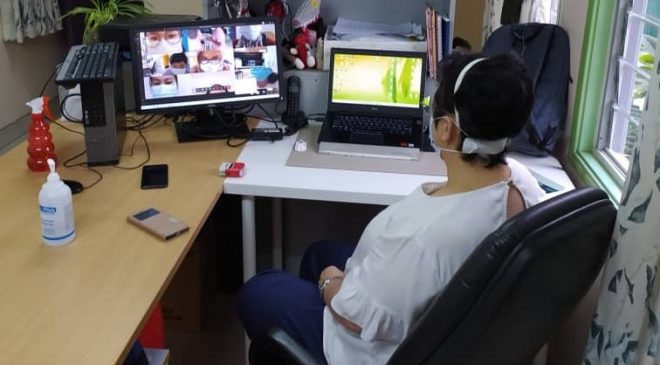
Managing variety tasks with patients and healthcare workers remotely.
The National Stroke Association of Malaysia (NASAM) had to turn quickly adapt the organisation, when all the immediate shutdown of all nine of its centres’ country-wide, due to COVID-19 lockdown.
Through a frantic push to transit all communications and internal processes online, NASAM swiftly deployed Microsoft Teams across all centres – Petaling Jaya, Ampang, Ipoh, Johor Bahru, Kota Kinabalu, Kuantan, Melaka, Penang and Kulim – within half a day. This ensured therapists could continue planning care for their stroke patients while staying updated and organized from their homes.
Head of Rehabilitation, Chan said, keeping in touch with her 30 therapists across the centres was no easy feat, given the number of tasks that had to be managed remotely.
This ranged from regular meetings with specific groups of therapists, to conducting daily Continued Medical Education (CME) sessions – a series of two-hour webinars and journal reviews with the centres held daily.
All interactions transitioned to video calls on Microsoft Teams, where Chan was able to effectively resume daily communications with her therapists. Across the board, therapists promptly familiarised themselves with integrative Microsoft Teams functions such as video conferencing, sharing documents and setting up channels.
These intuitive tools created a conducive environment for conducting regular meetings and training that kept therapists abreast of the latest healthcare knowledge and services.
As Malaysia’s Movement Control Order (MCO) eased and organisations were set to reopen, meetings and preparations at NASAM ramped up further.
While essential announcements and updates by the Ministry of Health and the NASAM CEO were cascaded via WhatsApp and email, Chan concurrently initiated virtual meetings on Microsoft Teams, where she reinforced all announcements and measures across centres. These measures included revised therapy hall arrangements, setting up screening areas and crowd control for stroke patients and caregivers to practice safe distancing as they reopened.
On meetings with individual centres, Chan would host quizzes and roleplay with her therapists to cement their understanding of these measures. This included situations where they were required to provide operational updates to government authorities during centre spot checks.
Tags: Microsoft TeamsNational Stroke Association Malaysiaremote working




